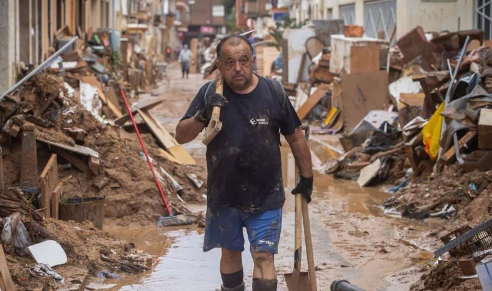Accusations Mount in Spain Over Accountability for Devastating Floods

In the wake of Spain’s recent and deadly floods, a heated debate is unfolding across the country as government officials, local authorities, and environmental advocates clash over who is responsible for the widespread destruction. The catastrophic flooding, which swept through several regions, has left many questioning whether preventative measures could have reduced the disaster’s toll.
Heavy rains caused rivers to overflow, inundating towns and destroying infrastructure. While Spain’s natural landscape has seen significant flooding before, critics argue that urban expansion into flood-prone areas, insufficient infrastructure, and climate change have heightened the risks. Environmental groups assert that inadequate planning and weak environmental regulations exacerbated the flooding’s impact, stressing that overdevelopment in vulnerable areas has compromised natural flood defenses.
Local and regional officials have come under fire for their preparedness and response efforts. Some residents in affected areas claim that evacuation orders and flood warnings were issued too late to prevent loss of life and property. In response, government officials have defended their actions, citing the unprecedented scale of the storm and the challenges of anticipating such extreme weather patterns. The Spanish government has committed additional resources to assist with recovery and is examining ways to strengthen emergency planning.
Climate experts emphasize that as climate change intensifies, Spain and other countries in Southern Europe will face more frequent and severe weather events. They argue that adapting infrastructure to meet these evolving threats should be a top priority. The floods have reignited calls for stronger climate policies, improved urban planning, and investment in flood management systems.
As Spain contends with the aftermath, this debate over accountability and preparedness is likely to shape future policies aimed at safeguarding communities against escalating climate threats.





